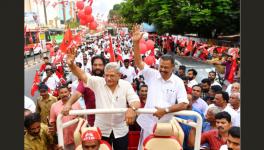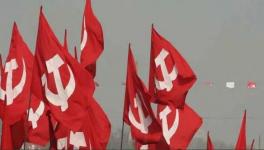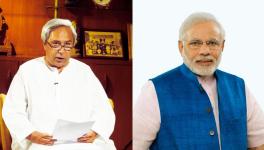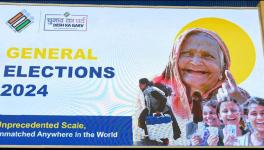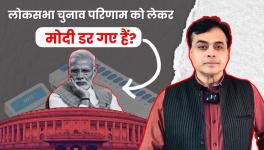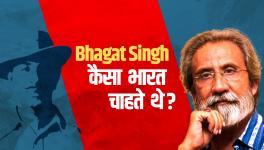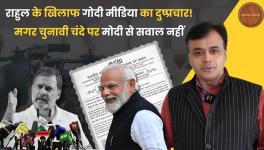Anti-CAA Talks Not Allowed in Universities, While Course Introduced in UP to ‘Clear Fog’
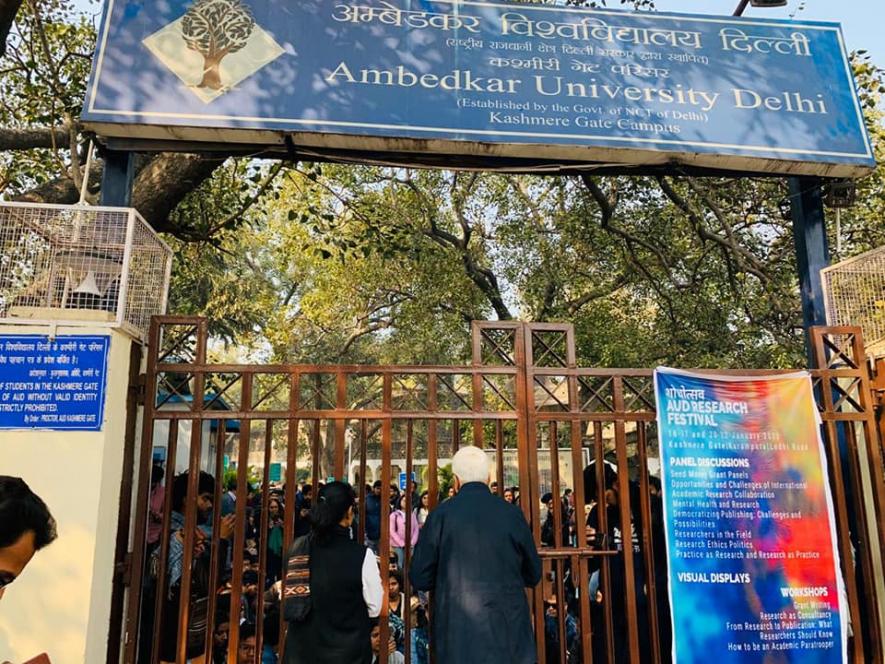
CPI(M) leader Prakash Karat addressing the students outside the AUD campus gates. Image Courtesy - Facebook
Universities are medium for free exchange of ideas. Not any more in Modi’s new India, especially if the idea is critical of his government or its policies. This has norm has become visible in recent times, especially after administration of two premier universities in Delhi—Sri Ram College of Commerce (SRCC) affiliated to the Delhi University and Ambedkar University (AUD)—did not give or withdrew permission for the scheduled discussions on Citizenship Amendment Act (CAA), proposed National Population Register (NPR) and the imminent nationwide National Register of Citizens (NRC).
In a first, the Principal of SRCC cancelled a discussion on “Why is the Northeast protesting?” on January 23, just an hour before it was scheduled. The Northeast Cell of Students, who organised the event, in a statement alleged that they were asked to indefinitely postpone the discussion because of the “possibility of violence on campus if the event was to take place”.
“We were also told that there was no balance in our panel and all our speakers had the ‘same bent of mind’. They also suggested this event be conducted at a later time and said it was unwise to have the event in this climate,” the statement issued by the Northeast Cell said.
Also read: Students’ Anti-CAA Protests Resurrect Ideal of Equality
The students of the college also boycotted their classes on January 24 in protest against the administration’s arbitrary decision. The Students’ Federation of India Delhi University unit also convened a program outside SRCC in solidarity with the students as well as the protests happening in the Northeast against CAA.
Only a day earlier, the administration of another university, AUD denied entry to Communist Party of India (Marxist) [CPI(M)] leader Prakash Karat in the campus for a panel discussion on the controversial act. The university cited the model code of conduct in force for the upcoming Assembly elections in the national capital as the reason. As a result, Karat addressed the gathering from outside the campus gate.
“In reality, the event was not violating any code since none of our speakers are ministers or candidates in the upcoming Delhi elections,” said the Students’ Federation of India (SFI) unit in AUD, the organisers of the event, in a statement. The students body also called the regulations of the AUD administration “undemocratic” and “arbitrary”.
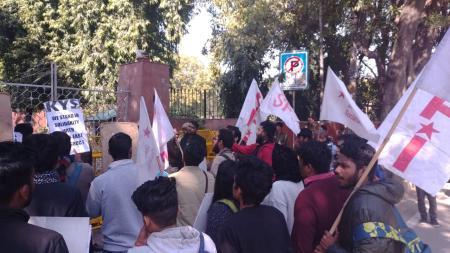
SFI - Students Protesting on January 24 against the decision of SRCC principal.
However, in another case, the administration of south Delhi’s Ram Lal Anand College—where earlier on January 17 a seminar titled “CAA-NRC: Myths and Facts” was organised by the college students’ union—was quite supportive. It is to be noted that the meeting was addressed by former Member of Parliament from Bharatiya Janata Party (BJP) Balbir Punj.
Now, a three month certificate course to “clear the fog” around the CAA has been started by Uttar Pradesh Rajarshi Tandon Open University (UPRTOU) in Prayagraj. “We want the intent of the government and Parliament to reach the people in a credible and verifiable manner. In addition, we want to put to rest the misconceptions and the babble around it. It’s an Act to give citizenship, not take it away,” Outlook quoted the university vice chancellor Kameshwar Nath Singh as saying.
The event in Delhi’s RLAC, which was allowed despite the model code of conduct, didn’t go well with the students who pointed certain inaccuracies and ‘communally-laden’ remarks in the talk presented by Punj.
“We the students of RLAC condemn the statements made by the speaker during the seminar held on 17th of January… the statements made were insensitive, Islamophobic, and deeply hurt the sentiments of the student community,” read a statement released by the students. They also alleged that they received threats from Akhil Bhartiya Vidyarthi Parishad (ABVP), an RSS-affiliated students body, for calling out the “lies” made by the speaker.
Also read: CAA-NRC: Universities and Other Institutions in Northeast to Observe ‘Shut Down’ on Jan 22
Comparing the recent episodes, Sumit Kataria, president of SFI Delhi called it an “attack on the idea of a university where open exchange of ideas must be safeguarded and valued”.
“This is an attempt to curb the dissent within the campus space. The universities, under the BJP government, allow dissemination of only those views that suit their narrative. Anything that is, or seems to be, critical of the decisions of this government—in this case being CAA, NRC, NPR—are snagged,” Kataria told NewsClick.
Protests have erupted in various parts of the country against the controversial act, which have witnessed huge participation of people—especially women—from all backgrounds. Calling the act “unconstitutional”, the protesters have demanded revocation of CAA and refusal to accept the imminent NRC.
Get the latest reports & analysis with people's perspective on Protests, movements & deep analytical videos, discussions of the current affairs in your Telegram app. Subscribe to NewsClick's Telegram channel & get Real-Time updates on stories, as they get published on our website.










